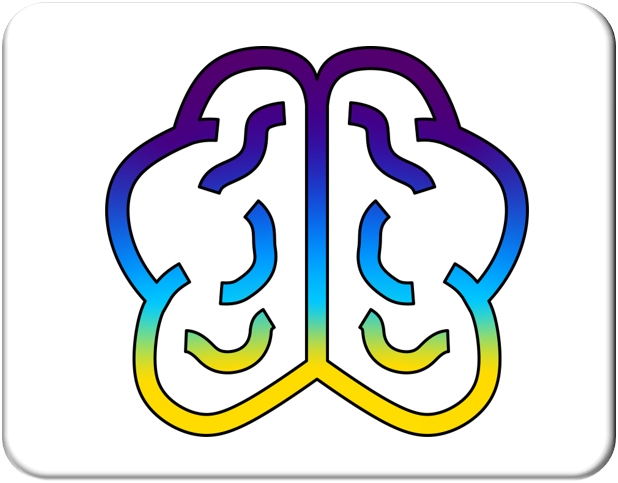We've compiled a list of some great books featuring queer representation - before we get to that though, why's it so important to have these examples?
What is Queer Literature?
Queer literature is any written piece of work that centralises or involves queer narratives as ‘overt and central to the plot’.
Centralising the queer experience within literature as well as including characters that are a part of the LGBTQ+ community is both important and necessary. Indeed, multiple identities on the gender and sexuality spectrum need to be reflected and represented, both respectfully and accurately.
Why is it important?
Recently members of the Q42 book club discussed the importance of representation. One of its members stated:
‘Reading LGBTQ+ representation provided validation, it told me it was ok to like who I like. There’s already so many straight stories, and I want more stories where I can empathise with the characters and see my own experiences/ possibilities represented.’
Indeed, the intimacy of feeling noticed and valued is extremely encouraging and validating. It’s comforting to have one’s experience recognised. It allows for a deeper sense of belonging and understanding of ourselves and others.
Speaking for myself, during the first year after I spoke about my sexuality to both my family and friends I read as much queer literature as I could. It became a way for me to further connect and explore my identity. There is something really exciting about being alone with a book and feeling a personal connection to it all at the same time.
For those who identify as straight or cisgender, reading a story about an LGBTQ+ experience can provide a positive insight into the lives of those who do not fit within heteronormative and cisnormative culture that is still dominant in our society today. A story about a young non-binary teen who begins to explore their own gender identity, for instance, promotes positive awareness and introduces readers to gender identities outside of the gender binary.

Finding Positive Representation
It's important to distinguish between bad representation and positive representation. This being not only the inclusion of characters that identify as LGBTQ+, but characters and stories that accurately represent their experiences. To quote another Q42 book club member:
‘Reading LGBTQ+ books provides normalisation of these relationships / identities; It’s really validating. These aren’t really portrayed enough in the media, especially major film and tv studios. Having representation in a book, and having something that relates to you, and you can see yourself in a character, it makes the whole experience more enjoyable and more relevant. It’s… nice.’
Indeed, the inclusion of queer characters alone is not enough for this to count as positive representation. Positive representation is one that aims to not only include, but accurately represent the experience that the author intends to discuss. Of course, identifying as LGBTQ+ does not mean that all LGBTQ+ people have the same experiences, especially when considering different backgrounds, ethnicity, race, age, religion, and disability; the list goes on.
If queer representation isn’t entirely accurate and diverse in the way that it portrays queer identities, this can have a knock-on effect in regard to not only how queer people see themselves represented, but also in the way that misinformation can be spread. YouTubers Rowan Ellis and Jade Fox both offer some interesting insights on the topic of misinformation and representation. The links to these videos can be found in the further reading section below.
On that note, it must be considered that representation means to recognise, include, and value those who are perceived as different within their society and culture.
One way of reducing misinformation would be to read queer literature that is written by members of the LGBTQ+ community. Of course, there are ongoing examples of good and bad representation and not everyone is going to get it right all the time. So, let’s continue to discuss and encourage the positive impact of accurate, diverse, and respectful representation, so that all of us can see and hear ourselves in the stories we love.
Written by Emily Bridgett
Take a look at some of our Q42 group book recommendations below;

Pet by Akwaeke Emezi
There are no more monsters anymore, or so the children in the city of Lucille are taught. With doting parents and a best friend named Redemption, Jam [a trans girl] has grown up with this lesson all her life. But when she meets Pet, a creature made of horns and colours and claws, who emerges from one of her mother’s paintings and a drop of Jam’s blood, she must reconsider what she’s been told. Pet has come to hunt a monster, and the shadow of something grim lurks in Redemption’s house. Jam must fight not only to protect her best friend, but also to uncover the truth, and the answer to the question — How do you save the world from monsters if no one will admit they exist?
When the Moon was Ours by Anna-Marie McLemore
To everyone who knows them, best friends Miel and Sam [a trans boy] are as strange as they are inseparable. Roses grow out of Miel’s wrist, and rumors say that she spilled out of a water tower when she was five. Sam is known for the moons he paints and hangs in the trees, and for how little anyone knows about his life before he and his mother moved to town. But as odd as everyone considers Miel and Sam, even they stay away from the Bonner girls, four beautiful sisters rumored to be witches. Now they want the roses that grow from Miel’s skin, convinced that their scent can make anyone fall in love. And they’re willing to use every secret Miel has fought to protect to make sure she gives them up.


Mask of Shadows by Linsey Miller
Sallot Leon is a thief, and a good one at that. But gender fluid Sal wants nothing more than to escape the drudgery of life as a highway robber and get closer to the upper-class—and the nobles who destroyed their home.
When Sal steals a flyer for an audition to become a member of The Left Hand—the Queen’s personal assassins, named after the rings she wears—Sal jumps at the chance to infiltrate the court and get revenge.
But the audition is a fight to the death filled with clever circus acrobats, lethal apothecaries, and vicious ex-soldiers. A childhood as a common criminal hardly prepared Sal for the trials. And as Sal succeeds in the competition, and wins the heart of Elise, an intriguing scribe at court, they start to dream of a new life and a different future, but one that Sal can have only if they survive.
Cemetery Boys by Aidan Thomas
When his traditional Latinx family has problems accepting his gender, Yadriel becomes determined to prove himself a real brujo. With the help of his cousin and best friend Maritza, he performs the ritual himself, and then sets out to find the ghost of his murdered cousin and set it free.
However, the ghost he summons is actually Julian Diaz, the school’s resident bad boy, and Julian is not about to go quietly into death. He’s determined to find out what happened and tie up some loose ends before he leaves. Left with no choice, Yadriel agrees to help Julian, so that they can both get what they want. But the longer Yadriel spends with Julian, the less he wants to let him leave.


Dreadnought by April Daniels
Danny Tozer has a problem: she just inherited the powers of Dreadnought, the world’s greatest superhero.
Until Dreadnought fell out of the sky and died right in front of her, Danny was trying to keep people from finding out she’s transgender. But before he expired, Dreadnought passed his mantle to her, and those secondhand superpowers transformed Danny’s body into what she’s always thought it should be. Now there’s no hiding that she’s a girl.
It should be the happiest time of her life, but Danny’s first weeks finally living in a body that fits her are more difficult and complicated than she could have imagined. Between her father’s dangerous obsession with “curing” her girlhood, her best friend suddenly acting like he’s entitled to date her, and her fellow superheroes arguing over her place in their ranks, Danny feels like she’s in over her head.
She doesn’t have much time to adjust. Dreadnought’s murderer—a cyborg named Utopia—still haunts the streets of New Port City, threatening destruction. If Danny can’t sort through the confusion of coming out, master her powers, and stop Utopia in time, humanity faces extinction.
Dragon Pearl by Yoon Ha Lee
Thirteen-year old Min comes from a long line of fox spirits. But you’d never know it by looking at her. To keep the family safe, Min’s mother insists that none of them use any fox-magic, such as Charm or shape-shifting. They must appear human at all times.
Min feels hemmed in by the household rules and resents the endless chores, the cousins who crowd her, and the aunties who judge her. She would like nothing more than to escape Jinju, her neglected, dust-ridden, and impoverished planet. She’s counting the days until she can follow her older brother, Jun, into the Space Forces and see more of the Thousand Worlds.
When word arrives that Jun is suspected of leaving his post to go in search of the Dragon Pearl, Min knows that something is wrong. Jun would never desert his battle cruiser, even for a mystical object rumored to have tremendous power. She decides to run away to find him and clear his name.
Min’s quest will have her meeting gamblers, pirates, and vengeful ghosts. It will involve deception, lies, and sabotage. She will be forced to use more fox-magic than ever before, and to rely on all of her cleverness and bravery. The outcome may not be what she had hoped, but it has the potential to exceed her wildest dreams.
[Written by a trans man, this book deals with gender identity and expression, and represents a trans-inclusive universe with several openly trans and non-binary characters.]


The Magnus Chase Trilogy by Rick Riordan
Magnus Chase has seen his share of trouble. Ever since that terrible night two years ago when his mother told him to run, he has lived alone on the streets of Boston, surviving by his wits, staying one step ahead of the police and the truant officers.
One day, Magnus learns that someone else is trying to track him down—his uncle Randolph, a man his mother had always warned him about. When Magnus tries to outmaneuver his uncle, he falls right into his clutches. Randolph starts rambling about Norse history and Magnus’s birthright: a weapon that has been lost for thousands of years.
The more Randolph talks, the more puzzle pieces fall into place. Stories about the gods of Asgard, wolves, and Doomsday bubble up from Magnus’s memory. But he doesn’t have time to consider it all before a fire giant attacks the city, forcing him to choose between his own safety and the lives of hundreds of innocents. . . .
Sometimes, the only way to start a new life is to die.
Sources and Further Reading
Rowan Ellis, ‘Bad LGBT Representation VS No LGBT Representation’
Jade Fox, 'Why LGBT Movies Are Bad + The Problem w/ Representation’
‘Important milestones in LGBTQ+ publishing’,
Katie Stokes, ‘LGBTQ+ representation in literature’
Fey Kapur, ‘Exploring the importance of LGBTQ+ representation in literature’
Uma Dodd, ‘Queerbaiting and the issue of LGBT representation in the media’
Michael Waters, ‘A Brief History of Queer Young Adult Literature’





